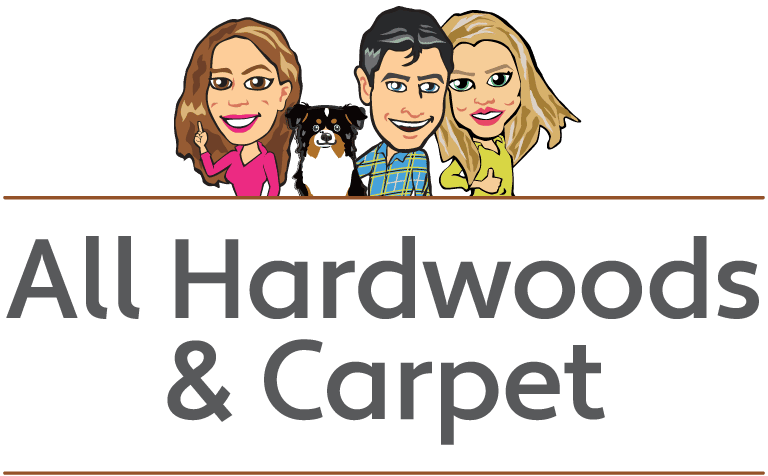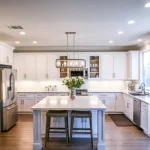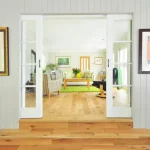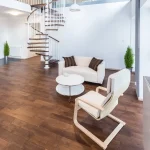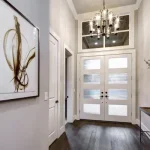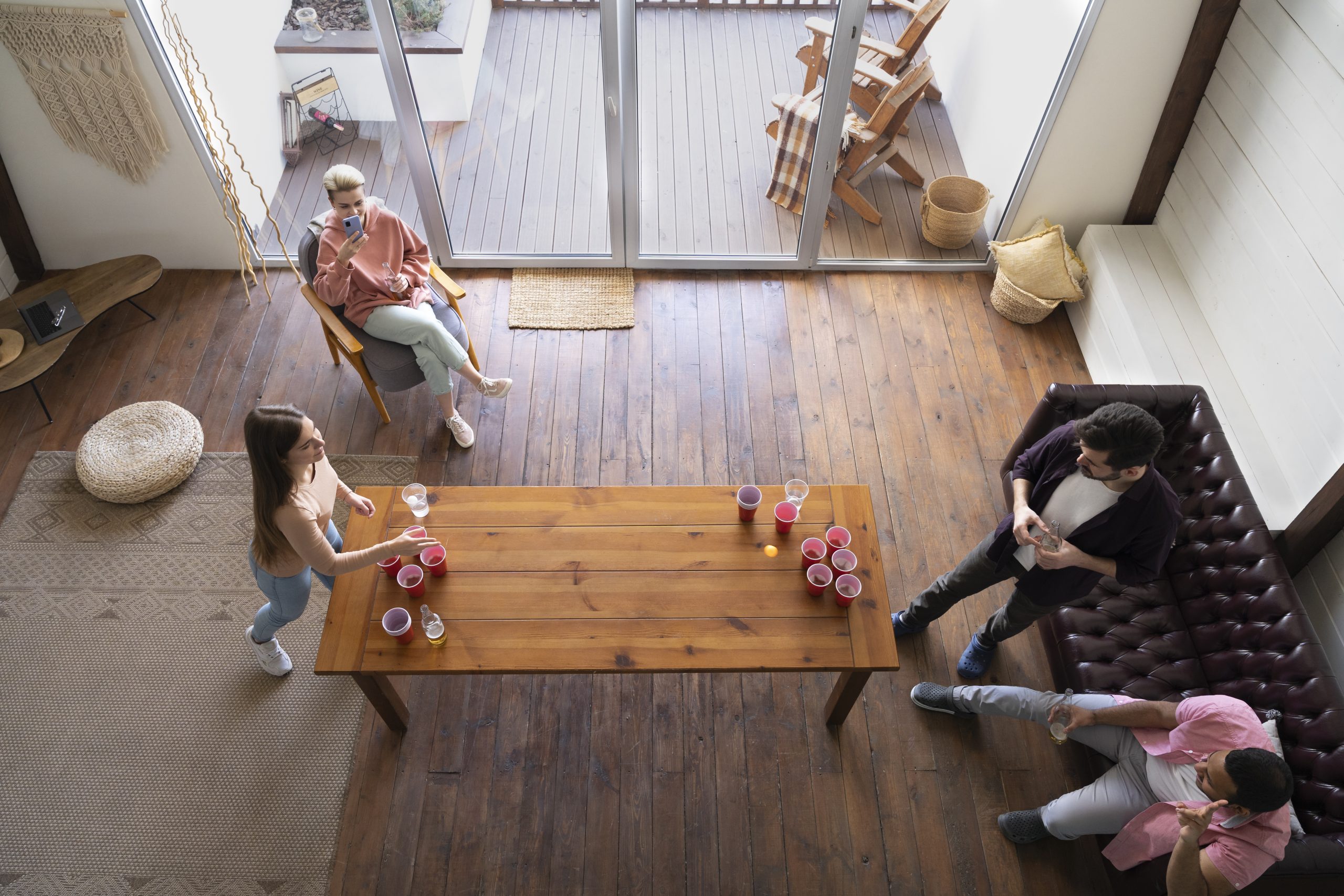
How Moisture Affects Hardwood Floors and How to Protect Them
Hardwood flooring is known for its beauty and durability, but it’s no secret that moisture can be its biggest enemy. Whether you live in Norwalk, Stamford, Greenwich, or other areas in Fairfield County, understanding how moisture impacts hardwood and how to protect your floors can save you from costly repairs. This guide covers everything you need to know about moisture damage and the best ways to prevent it, ensuring your hardwood floors stay in top condition for years to come.
How Moisture Affects Hardwood Floors
Hardwood is a natural material that responds to changes in humidity and moisture levels in the environment. While some level of expansion and contraction is normal, excessive moisture can lead to serious problems, including:
Warping
- Warping occurs when wood absorbs too much moisture, causing it to expand unevenly. This leads to the planks bending or twisting, creating an uneven surface. Warped floors can become a significant safety hazard, especially in high-traffic areas like hallways and living rooms.
Cupping
- Cupping happens when the edges of a plank are higher than its center. This issue is common when there’s excess moisture at the surface or below the flooring, often in homes located near the coast, like in Greenwich or Westport.
Buckling
- Buckling is one of the most severe forms of moisture damage. It occurs when hardwood lifts entirely from the subfloor, creating gaps between the floorboards and the surface below. This often happens after flooding or severe water leaks.
Mold and Mildew Growth
- Excess moisture can also create the perfect environment for mold and mildew to grow, especially in humid climates like Stamford or Darien. Mold growth not only damages the wood but also poses serious health risks.
How to Protect Hardwood Floors from Moisture
The good news is that you can take steps to protect your hardwood floors from moisture damage. Here’s how:
Control Humidity Levels
- The ideal humidity level for hardwood floors is between 30-50%. Use a humidifier in winter when indoor air can be dry, and a dehumidifier in summer when humidity levels rise.
- In coastal cities like Norwalk or Greenwich, where humidity tends to be higher, installing a whole-house dehumidification system can be an effective solution.
Use a Moisture Barrier During Installation
- When installing hardwood floors, especially in moisture-prone areas like basements, it’s crucial to use a vapor barrier or moisture-resistant underlayment. This added layer helps prevent moisture from seeping up through the subfloor.
- Engineered hardwood, which has a more stable core than solid hardwood, can be a good option in moisture-prone areas like basements or kitchens in homes across Stamford and Darien.
Clean Up Spills Immediately
- Water and other liquid spills should be cleaned up as quickly as possible. Even small amounts of water left on the surface can seep into the wood and cause damage over time.
- Use a dry or slightly damp cloth to absorb spills, and never allow water to pool on your hardwood floors.
Place Mats and Rugs Strategically
- Use mats or area rugs in areas prone to moisture, such as entryways, kitchens, and bathrooms. This not only reduces the risk of water damage but also prevents scratches and wear in high-traffic areas.
- Opt for breathable mats that won’t trap moisture underneath, as this can cause damage to the hardwood over time.
Seal Your Hardwood Floors
- Applying a protective sealant can help make your hardwood floors more water-resistant. Polyurethane is a popular option, offering a durable, moisture-resistant finish.
- Reapply the sealant periodically, typically every 3-5 years, depending on the level of foot traffic in your home, whether you’re in Westport, Norwalk, or Fairfield.
Inspect for Leaks Regularly
- Regularly inspect areas around plumbing, like kitchens, bathrooms, and laundry rooms, for potential leaks. Fixing leaks quickly can prevent moisture from reaching your hardwood floors.
- In cities like Stamford or Darien, where heavy rainfall is common, check for leaks around windows and doors to prevent water intrusion.
Use Window Treatments
- Direct sunlight can dry out hardwood, leading to cracks, but it can also cause condensation that increases moisture levels in the room. Use window treatments like blinds or curtains to block sunlight and reduce temperature fluctuations that can affect humidity levels.
Why Choose Hardwood Floors LLC for Moisture Protection?
At Hardwood Floors LLC, based in Norwalk, CT, we understand the challenges of maintaining hardwood floors in varying climates like those in Fairfield County. Our team is committed to helping homeowners in Stamford, Greenwich, Westport, Darien, and surrounding areas keep their floors in pristine condition.
We offer a range of services, including:
- Expert installation with moisture barriers
- Refinishing and sealing services to protect your floors
- Maintenance advice tailored to your specific environment
Contact Us:
- Location: Norwalk, CT
- Phone: (203) 913-4209
- Website: www.hardwoodfloorsllc.com
If you’re experiencing moisture issues or simply want to protect your hardwood floors, our team can help with comprehensive solutions designed to fit your needs.
Final Thoughts: Protect Your Investment
Moisture can be a significant threat to hardwood floors, but with the right precautions, you can protect your investment. By controlling humidity levels, cleaning spills promptly, and using protective measures like mats and sealants, you can extend the lifespan of your hardwood flooring. Whether you’re in Norwalk, Stamford, Greenwich, or beyond, taking these steps can prevent costly repairs and keep your floors looking beautiful for years.
For more information on how to maintain and protect your hardwood floors, reach out to Hardwood Floors LLC. We’re here to help you make the most of your flooring investment.

